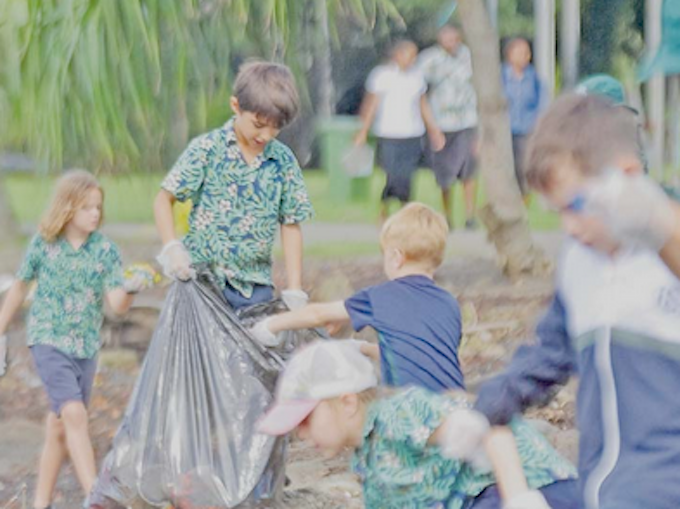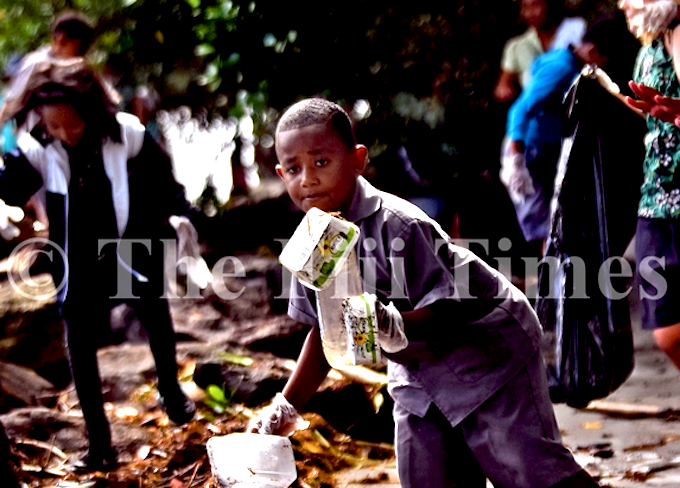
By John Mitchell in Suva
Fiji got to celebrate World Oceans Day this week — a day when our conscience gets the occasional prick on matters related to the value of the ocean in sustaining life.
I like to brag about growing up surrounded by the sea and those unique moments during childhood I spent rowing across Qamea’s picturesque and mangrove-fringed Naiviivi Bay, plucking seashells from shallow tide pools and digging up vetuna (sandworm) from the sand.
Yes, the sea is a way of life for all of us.
Think of this.
The ocean covers more than 70 percent of the planet.
It is our life source, supporting humanity’s sustenance and existence, and that of every other organism on earth.
The ocean produces much of the oxygen we breath and need to survive, it is the habitat of most of earth’s biodiversity and is the main source of meat protein for more than a billion people around the world.
40 million ’employees’
The ocean is key to our economy with an estimated 40 million people to be employed by ocean-based industries by 2030.
In Fiji, an estimated 60 percent of the 900,000 population are thought to live in coastal communities, surviving on activities linked to the ocean, and our fisheries and tourism sectors are so intrinsically connected to the health of the ocean.
But the ocean we call our home is facing a variety of threats that challenges its existence and endangers humanity.
United Nations statistics say that we have depleted 90 percent of big fish populations and destroyed 50 percent of coral reefs.
“We are taking more from the ocean than can be replenished. We need to work together to create a new balance with the ocean that no longer depletes its bounty but instead restores its vibrancy and brings it new life,” the UN says.
With such dreadful reality in the backdrop, the 2023 WOD theme seemed timely and relevant — “Planet Ocean: tides are changing”.
It provides us with an opportunity to rethink what we’ve done, what we need to do and how to work together with world leaders, decision-makers, indigenous leaders, scientists, private sector executives, civil society, celebrities, and youth activist to make the health of the ocean a public agenda.

Clean up day
On Wednesday this week, The Fiji Times’ front page photo was of Josaia Waqaivolavola, a Year 2 student from Veiuto Primary School who was captured on camera participating in a beach clean up at My Suva Picnic Park along the Nasese foreshore.
His group collected 10 trash bags filled with plastics, among others.
It’s when we see the amount of rubbish along our coastlines and in the sea around us that we begin to realise that all the talk about “putting rubbish in the bin” is not working.
We talk about responsible citizenship but plastics continue to pollute our communities, roads, streets and parks, and our oceans.
Plastics have become so cheap to produce that we are producing things we don’t intend to keep for long.
In other words, we are producing plastics only to throw them away.
We are now mass producing disposable plastics at a phenomenal rate that the world’s waste management systems are finding hard to keep up.
40% of plastics disposable
It is estimated that about 40 percent of the now more than 448 million tonnes of plastics produced every year is disposable and used in products intended to be discarded virtually soon after purchase.
Just go to the beach and you’ll find them on the sand.
World statistics estimate that each day billions upon billions of plastic material find their way into our rivers, streams and eventually into our oceans.
During my childhood years on Qamea, my family’s livelihood depended on the sea.
At a time, when village canteens had no refrigerators to store meat, the sea was our main source of daily meat protein.
Many years ago, scientists and environment experts were warning us that the amount of plastics in the world’s ocean would increase 10 times by 2020.
That was three years ago.
Too polluted for fish
They further advised that by 2050, if statistical predictions remain true, we’d have so much plastics in the sea and our oceans would too polluted that fish and other delicacies would be unsafe to eat or we’d not be able to even swim anymore.
Cleaning the ocean is good but may not be good enough.
We need to nip this spiralling issue in the bud.
We need to work before the plastic reaches the ocean.
We need to work on land where they are produced before we go to the ocean.
In Fiji, the concern over disposable plastic waste is the same as the threat in other countries of the world — we are using more disposable plastics at a rate faster than we are able to effectively dispose them that our waste managing systems are struggling to contain the problem.
Recycling not effective
Our recycling initiatives are not effectively solving our disposable plastic dilemma.
During this year’s WOD celebrations, UN Secretary-General Antonio Guterres described the ocean as “the foundation of life”.
That pretty much sums everything up.
If the ocean is life, then why can’t we get out act together.
The ball is in everyone’s court and the time to act is now.
Until we meet again, stay blessed, stay healthy and stay safe!
John Mitchell is a Fiji Times journalist and writes the weekly “Behind The News” column. Republished with permission.











































